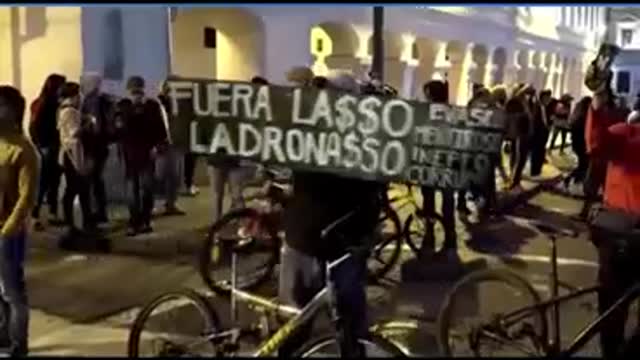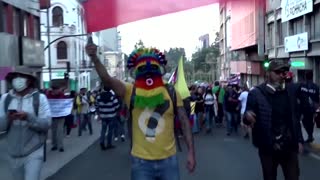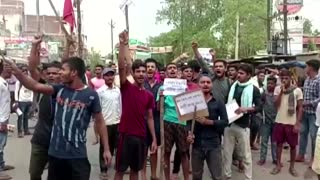Premium Only Content

Anti-government protests in Ecuador intensify
Recently, large-scale nationwide anti-government demonstrations broke out in the South American country of Ecuador due to rising fuel and food prices. At least 5 people have been killed and about 200 injured in the violent clashes. Several roads in Ecuador's capital, Quito, have been blocked, flights at airports across the country have been suspended, oil production has nearly ground to a halt and the economy has been paralyzed. A number of Ecuadorian lawmakers took the opportunity to propose an impeachment case against President Lasso on the grounds that the domestic situation was not effectively controlled. The political situation in Ecuador was turbulent, and the local security situation further deteriorated.
As the situation escalated, Ecuadorian President Guillermo Lasso declared on the 17th a 30-day state of emergency, including the provinces of Imbabura, Cotopaxi and Pichincha. After the protesters negotiated with the government, the Ecuadorian government complied with some of the protesters' demands, announcing to limit the cost of gasoline, keep the cost of diesel fuel unchanged, and subsidize the cost of fertilizers for small and medium farmers by 50%, and the public bank forgives overdue loans of up to $3,000 , but protests continue. A few radicals even started robbing banks and destroying oil production equipment and oil transportation lines, resulting in the stagnation of oil production in Ecuador and the risk of paralysis of the economic lifeline. On the 25th, the Ecuadorian government negotiated with the protesters again. The government promised to launch a dialogue committee to facilitate talks between the two sides, and ensured that the government would create a peaceful space to ensure that Ecuadorians gradually resume their activities, and then lifted the state of emergency.
-
 1:01
1:01
Reuters
2 years agoAnti-government protests grow violent in Ecuador
222 -
 0:50
0:50
Reuters
2 years agoClashes at anti-government protests in Peru
2651 -
 1:29
1:29
Reuters
2 years agoEcuador protests escalate, leaving one dead
3771 -
 0:58
0:58
Reuters
2 years agoProtests intensify over military recruitment in India
4022 -
 LIVE
LIVE
Film Threat
1 day agoLIVE OSCARS 2025 WATCH PARTY | 97th Academy Awards | Join the Chat!
1,062 watching -
 LIVE
LIVE
Akademiks
3 hours agoDay 2/30. Nipsey Hussle Brother Standing on Bizniz? Offset and Cardi Calls it Quits. 50 v Jim Jones?
2,888 watching -
 LIVE
LIVE
EricJohnPizzaArtist
2 hours agoAwesome Sauce PIZZA ART LIVE Ep. #37: Chaos in Roswell!
450 watching -
 2:11:29
2:11:29
vivafrei
12 hours agoEp. 253: Zelensky Dress-Down and Geopolitical Fallout! D.C. Court Rules AGAINST Trump Firing & MORE!
121K175 -
 2:13:14
2:13:14
Nerdrotic
5 hours ago $6.88 earnedMegalithomania! with Hugh Newman and Andrew Collins | Forbidden Frontier #092
49.5K16 -
 38:41
38:41
Sarah Westall
7 hours agoHealth Freedom Under Attack, Dr Robert Young Found Guilty on Suspicious Victimless Crime, Matt Hazen
43.4K4